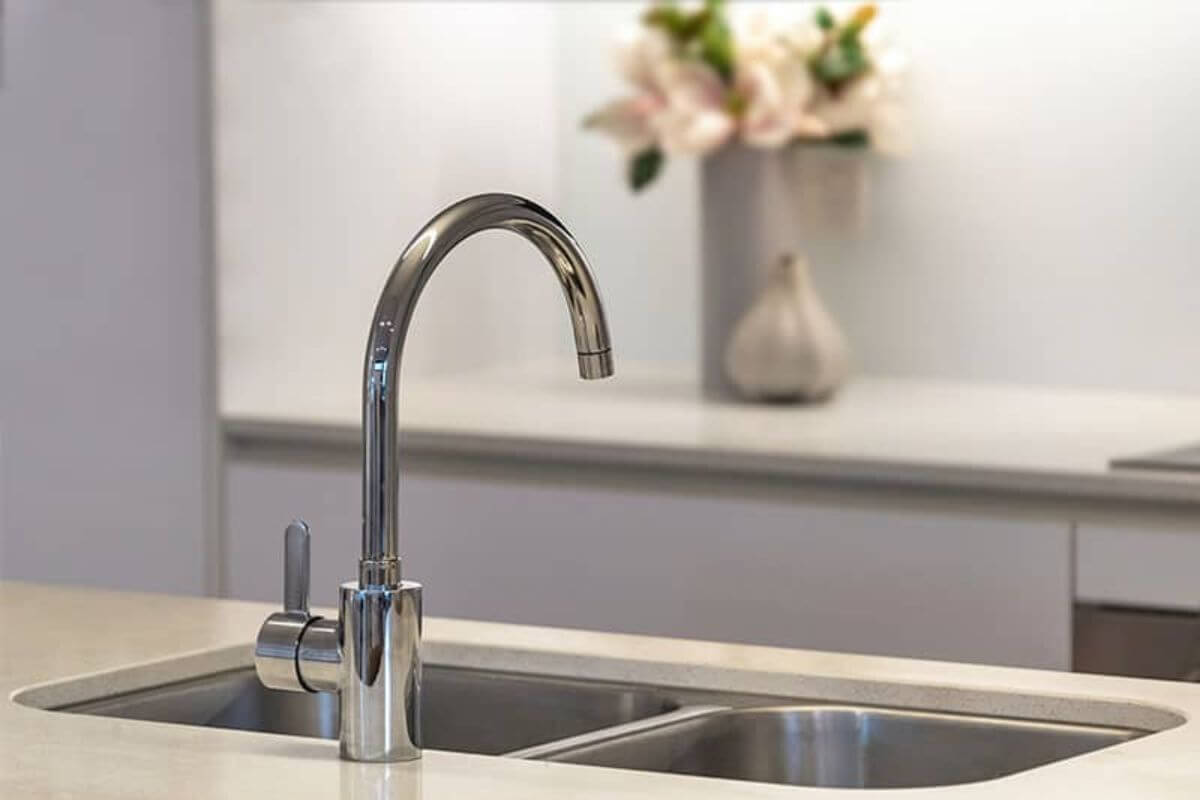Introduction
When it comes to choosing a sink for your kitchen, the options can be overwhelming. Two popular choices are composite sinks and stainless steel sinks. Each material has its own set of advantages and disadvantages, making the decision more challenging. In this article, we will compare composite sinks and stainless steel sinks, highlighting their features, pros, and cons, to help you make an informed decision that best suits your needs.
What are Composite Sinks?
Composite sinks are made from a combination of materials, typically a blend of crushed stone, such as quartz or granite, mixed with resins. This mixture creates a durable and visually appealing sink with a variety of colors and designs to choose from. Composite sinks have gained popularity due to their unique appearance and functionality.

Advantages of Composite Sinks
1. Durable and Resilient
Composite sinks are highly durable and can withstand heavy daily use without chipping or cracking. The combination of stone and resins makes them less prone to damage, ensuring a long lifespan for your sink.
2. Variety of Designs and Colors
One of the significant advantages of composite sinks is the wide array of designs and colors available. Whether you prefer a classic look or a modern aesthetic, you’ll find a composite sink that complements your kitchen’s style.
3. Resistance to Stains and Scratches
Composite sinks are resistant to stains and scratches, keeping them looking brand new for years. This feature is especially beneficial in busy kitchens where sink usage is frequent.
4. Quieter and Less Noisy
The composite material absorbs sound, making these sinks quieter compared to stainless steel sinks. Washing dishes or running water won’t produce the loud clanging noise associated with stainless steel.
Disadvantages of Composite Sinks
1. Vulnerable to Heat
Composite sinks are not as heat-resistant as stainless steel sinks. Placing hot pots or pans directly on the surface can cause damage, such as discoloration or warping.
2. Potential for Chipping
While composite sinks are generally durable, they can still chip or crack if subjected to heavy impact or dropped objects.
3. Requires Proper Maintenance
Composite sinks require regular maintenance to preserve their appearance. Harsh chemicals and abrasive cleaners should be avoided to prevent damage.
What are Stainless Steel Sinks?
Stainless steel sinks are made from a combination of metals, primarily steel, and chromium. These sinks have been a staple in kitchens for decades due to their practicality and affordability.
Advantages of Stainless Steel Sinks
1. Excellent Durability
Stainless steel sinks are known for their exceptional durability. They can withstand heavy use and resist damage, making them ideal for busy households.
2. Heat and Stain Resistance
Stainless steel sinks can handle high temperatures and are resistant to stains, making them a reliable choice for the kitchen.
3. Easy to Clean and Maintain
Maintaining a stainless steel sink is effortless, as it only requires regular cleaning with mild soap and water.
4. Budget-Friendly Option
Stainless steel sinks are more budget-friendly compared to composite sinks, making them an attractive choice for cost-conscious homeowners.
Disadvantages of Stainless Steel Sinks
1. Susceptible to Scratches
Stainless steel sinks are prone to scratches, which can affect their appearance over time.
2. Prone to Water Spots
Stainless steel sinks are susceptible to water spots and fingerprints, requiring regular wiping to keep them looking spotless.
3. Can Be Noisy
The metallic nature of stainless steel can result in more noise when water hits the surface or when washing dishes.
Composite Sink vs. Stainless Steel: A Comparison
1. Appearance and Design
Composite sinks offer a wider variety of designs and colors, making them a better choice for homeowners seeking a unique and visually striking sink. On the other hand, stainless steel sinks have a classic and timeless look that complements various kitchen styles.
2. Durability and Resilience
Composite sinks are highly durable and can resist chips and cracks better than stainless steel sinks. However, stainless steel sinks are still durable and can handle heavy daily use.
3. Maintenance and Cleaning
Stainless steel sinks are easier to clean and maintain, requiring minimal effort to keep them looking pristine. Composite sinks demand more attention and gentle cleaning to preserve their appearance.
4. Price and Affordability
Stainless steel sinks are generally more affordable than composite sinks, making them an excellent choice for those on a budget.
5. Noise Reduction
Composite sinks are quieter due to their sound-absorbing properties, while stainless steel sinks tend to be noisier.
6. Heat and Stain Resistance
Stainless steel sinks offer better heat and stain resistance compared to composite sinks, which can be damaged by hot items and may be more prone to stains.
Which Sink Is Right for You?
The choice between a composite sink and a stainless steel sink ultimately depends on your priorities and kitchen requirements. If you value unique aesthetics and are willing to invest in a more eye-catching sink, a composite sink may be the best option. On the other hand, if durability, affordability, and easy maintenance are crucial factors, a stainless steel sink could be the ideal choice.
FAQs
1. Are composite sinks more expensive than stainless steel sinks?
Yes, composite sinks are generally more expensive than stainless steel sinks due to the materials used and the wide variety of designs available.
2. Can I place hot pots and pans directly on a composite sink?
It is not recommended to place hot pots and pans directly on a composite sink, as it can cause damage to the sink’s surface.
3. Do stainless steel sinks rust over time?
Stainless steel sinks are resistant to rust, but they may develop rust spots if exposed to certain corrosive substances.
4. How do I prevent scratches on my stainless steel sink?
To prevent scratches, avoid using abrasive cleaners and scrubbers on your stainless steel sink. Use a soft cloth or sponge for regular cleaning.
5. Can I install an undermount composite sink?
Yes, undermount composite sinks are available and can be installed in various kitchen configurations.



